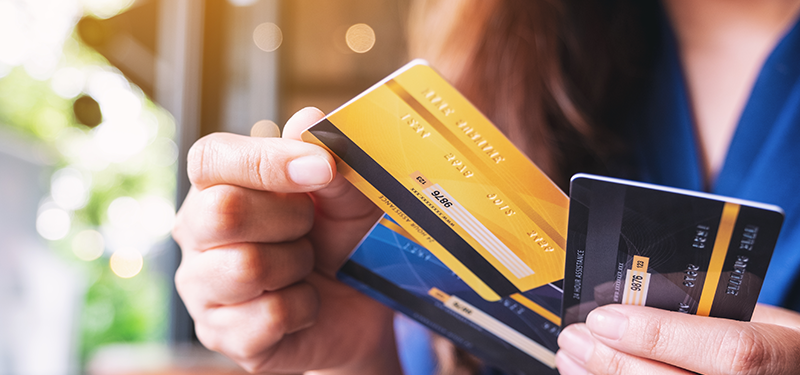Improve Credit Utilization

How to lower your credit utilization:
Let's take a look at five ways (some of them pretty clever) you can improve your credit utilization...
![]() Pay down your credit cards (obvious, right?). Ideally you want the balance on your credit cards to be no more than 30% of the available limit. A simple strategy is the 'avalanche method' to pay down your credit cards. You simply pay the one with the highest interest rate the most money you can, and pay the minimum to all the rest. Then set your sight on the next card after that.
Pay down your credit cards (obvious, right?). Ideally you want the balance on your credit cards to be no more than 30% of the available limit. A simple strategy is the 'avalanche method' to pay down your credit cards. You simply pay the one with the highest interest rate the most money you can, and pay the minimum to all the rest. Then set your sight on the next card after that.
![]() Roll credit card debt into a personal loan. Consolidating your credit cards into one lower interest rate loan will reduce the interest rate and bring down your payment, which means you can pay MORE toward the balance and get out of debt sooner. Many people also find it easier to stay on top of a single monthly loan payment instead of several credit card payments. Bonus: if your credit cards remain open after transferring the balance to a personal loan, your credit utilization ratio goes down! (Just don't start using them again--then you're in deep water.)
Roll credit card debt into a personal loan. Consolidating your credit cards into one lower interest rate loan will reduce the interest rate and bring down your payment, which means you can pay MORE toward the balance and get out of debt sooner. Many people also find it easier to stay on top of a single monthly loan payment instead of several credit card payments. Bonus: if your credit cards remain open after transferring the balance to a personal loan, your credit utilization ratio goes down! (Just don't start using them again--then you're in deep water.)
![]() Request a higher credit limit from your credit card company. In a recent survey, 89% of people who ask for a higher credit limit get one. For example, let’s say you have a balance of $8,000 on a card with a $10,000 limit. Increasing the limit from $10,000 to $15,000 would reduce your credit utilization ratio from 80 percent to 53 percent. The trap however that most people fall into is that they end up using the additional amount available. Avoid this, and you'll instantly reduce your credit utilization (and raise your credit score).
Request a higher credit limit from your credit card company. In a recent survey, 89% of people who ask for a higher credit limit get one. For example, let’s say you have a balance of $8,000 on a card with a $10,000 limit. Increasing the limit from $10,000 to $15,000 would reduce your credit utilization ratio from 80 percent to 53 percent. The trap however that most people fall into is that they end up using the additional amount available. Avoid this, and you'll instantly reduce your credit utilization (and raise your credit score).
![]() More cards means more limit. You can increase your "total" limit across your cards by opening a new one. However, keep in mind some warnings... 1) Having too many cards can be a red flag which means your score might not benefit in the end, 2) it's more temptation to use that new card (don't!), 3) a new account may also reduce the avg age of your tradelines, which can ding your score.
More cards means more limit. You can increase your "total" limit across your cards by opening a new one. However, keep in mind some warnings... 1) Having too many cards can be a red flag which means your score might not benefit in the end, 2) it's more temptation to use that new card (don't!), 3) a new account may also reduce the avg age of your tradelines, which can ding your score.
![]() Leave cards open. After paying off a card, keeping that card open means you’re maintaining your total credit limit—thereby lowering your credit utilization percentage.
Leave cards open. After paying off a card, keeping that card open means you’re maintaining your total credit limit—thereby lowering your credit utilization percentage.
Note: Taking out a personal loan to consolidate credit card debt, or asking for a higher credit limit on your card, or applying for a new card may all result in a “hard inquiry” on your credit, which can hurt your credit score. Even though hard inquiries have minor affects to your credit, they can add up.
Now that you know how to improve your credit utilization, it’s important to keep track of your progress. Check your credit card balances monthly and keep tabs on your utilization ratios. Many card issuers offer balance alerts via text or email, making it even easier to prevent your utilization ratio from creeping up. Monitoring your credit score can also provide motivation to keep your utilization in check.
Lenders want to see someone that can avoid temptation, and that proves they can be trusted with their money--period. One of the best ways to do this is by having a low credit utilization ratio. Hopefully these strategies will help you on your path to better credit.




